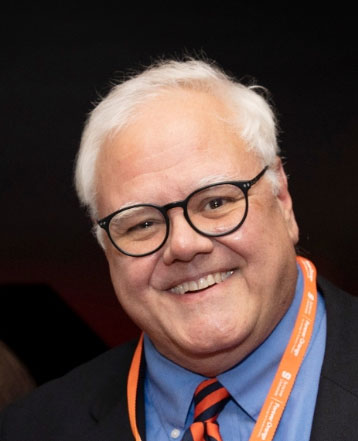
(April 26, 2022)
Our member Chuck Klaus majored in speech communications in college. He produced music programs for a radio station in Syracuse, New York, taught at the University there, and was a Drama and Music critic for the newspaper. He met his wife, Marylyn, at a concert there. When they married, he moved to California to be with her, and she brought him into our Rotary Club. He spoke of his long hours working on live programming from 5 to 10, and then arranging the programming for the remainder of the day.
Chuck began by playing a variety of old black and white TV program clips (YouTube version). There was concern in the 1960s about corporate control of broadcasting in the US, because the broadcasting frequencies were considered to belong to the people. Early public stations were operated by state colleges and universities to promote educational broadcasts. A 1950s TV program to promote children’s education was “Ding Dong School”. A later popular program was “Mister Rogers Neighborhood”. Conservative commentator William F Buckley hosted a weekly PBS public affairs show, “Firing Line”, for over 30 years.
The Corporation for Public Broadcasting (CPB) was established by the Congress in 1967 to support programming diversity among public broadcasters, promote noncommercial broadcasting, and provide federal funds to local stations for program creation, but it does not control their programming. Public radio and television stations often produce their own programs as well as purchase additional programming from national producers and program distributors such as the Public Broadcasting Service (PBS) and National Public Radio (NPR), which operate as technically separate entities.
PBS provides educational and arts programming that is otherwise minimally available on American television. Cable television and online streaming have led to the development of limited similar content, including to viewers in rural areas that do not have access to arts education, and where educational funding is even lower than in urbanized areas. Chuck compared PBS to the comprehensive services of the British Broadcasting Corporation (BBC), the world’s oldest and largest national broadcaster, most of whose employees are in public-sector broadcasting.
There are hundreds of individual public radio and public television stations licensed to various non-profit organizations, municipal or state governments, or universities (like KUSC). Government funding has been reduced over the years by pressure from politicians who object to the broadcasting of documentaries on social issues. Most of the financial support for public broadcasting comes from community organizations, foundations, business contributions and audience pledge drives (you’ve probably heard these periodically).